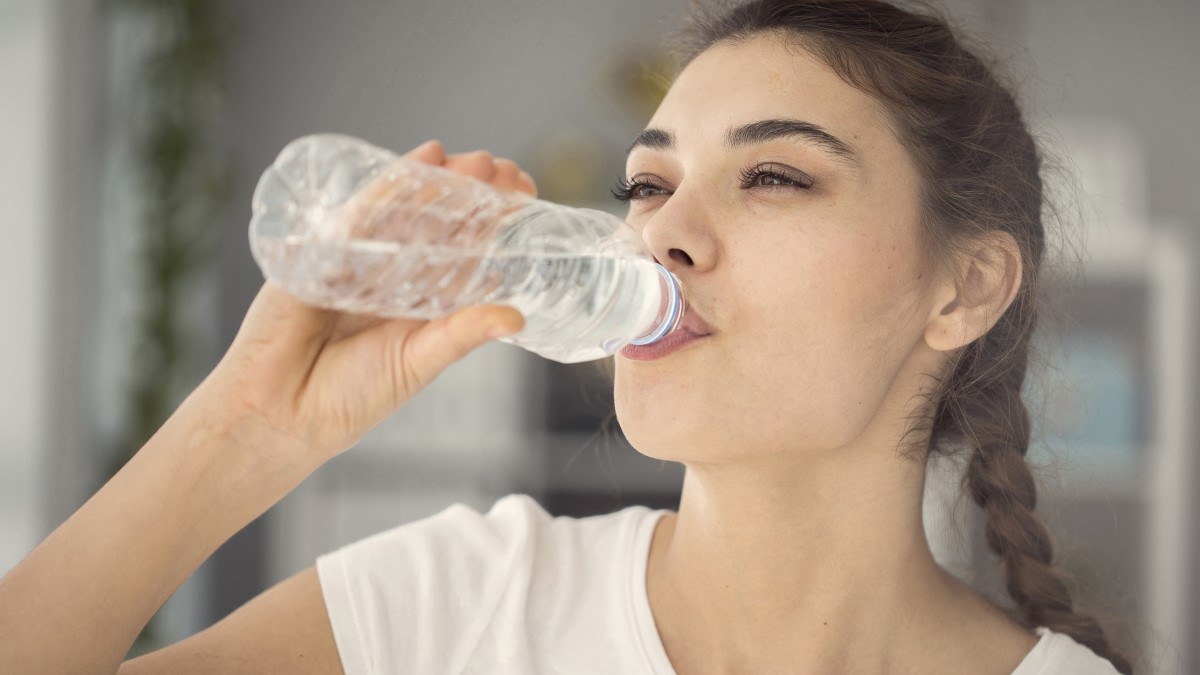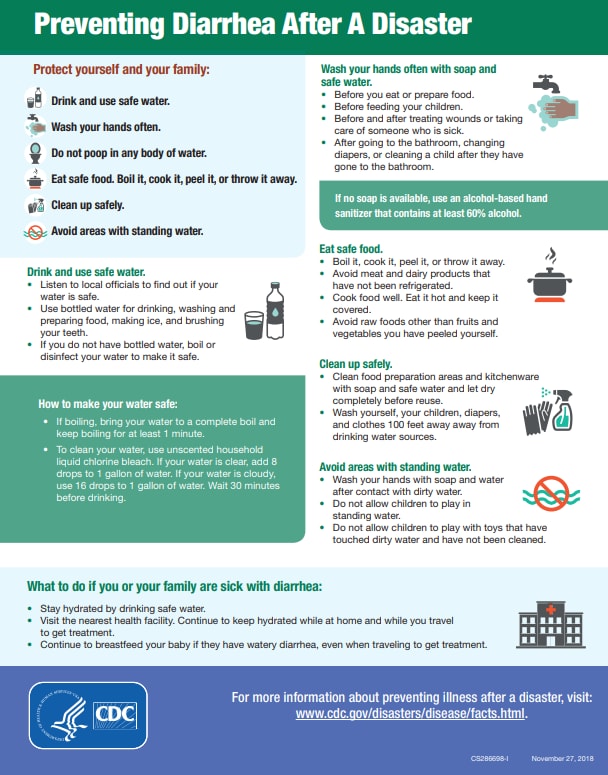At a glance
- Drink and use safe water.
- Wash your hands often.
- Do not defecate (poop) in any body of water.
- Make sure food is safe to eat or throw it away.
- Clean up safely.
- Avoid floodwater or contaminated water bodies.

Steps to take
Drink and use safe water
- Listen to local officials to find out if your water is safe.
- Use bottled water for drinking, washing and preparing food, making ice, and brushing your teeth.
- If you do not have bottled water, boil or disinfect your water to make it safe.
How to make your water safe by boiling or disinfecting
If boiling, bring your water to a complete boil and keep boiling for at least 1 minute. To disinfect your water, use unscented household liquid chlorine bleach. If your water is clear, add 8 drops to 1 gallon of water. If your water is cloudy, use 16 drops to 1 gallon of water. Wait 30 minutes before drinking.
Keep Reading:
How to Make Water Safe in an Emergency
Wash your hands often with soap and safe water
Wash your hands:
- Before you eat or prepare food.
- Before feeding your children.
- Before and after treating wounds or taking care of someone who is sick.
- After going to the bathroom, changing diapers, or cleaning a child after they have gone to the bathroom.
If soap and water are not readily available, you can use an alcohol-based hand sanitizer that contains at least 60% alcohol. You can tell if the sanitizer contains at least 60% alcohol by looking at the product label.
Eat safe food
Never taste food to determine if it is safe to eat. When in doubt, throw it out.
Throw out:
- Perishable food in your refrigerator (meat, fish, cut fruits and vegetables, eggs, milk, and leftovers) after 4 hours without power or a cold source like dry ice.
- Frozen food that has thawed or is above 40°F.
- Food that may have come in contact with floodwater or stormwater.
- Food in packages that are not waterproof.
- Food in cardboard containers, including juice, milk, and baby formula boxes.
- Food containers with screw caps, snap lids, crimped caps, twist caps, flip tops, and snap tops.
- Home-canned foods and canned foods or food containers that are bulging, open, or damaged.
- Cans or food containers that spurt liquid or foam when you open them or contain food that is discolored, moldy, or smells bad.
- Food with an unusual odor, color, or texture.
Keep Reading:
Keep Food Safe After a Disaster or Emergency
Clean up safely
- Clean food preparation areas and kitchenware with soap and safe water and let dry completely before reuse.
- Wash yourself, your children, diapers, and clothes 100 feet away from drinking water sources.
Avoid flood water or contaminated water bodies
- Wash your hands with soap and water after contact with flood waters.
- Do not allow children to play in flood water areas.
- Do not allow children to play with toys that have touched flood water and have not been disinfected.
What to do if you or your family are ill with diarrhea
Stay hydrated by drinking safe water or oral rehydration solution (ORS). Visit the nearest health facility. Continue to keep hydrated while at home and while you travel to get treatment. Continue to breastfeed your baby if they have watery diarrhea, even when traveling to get treatment.

